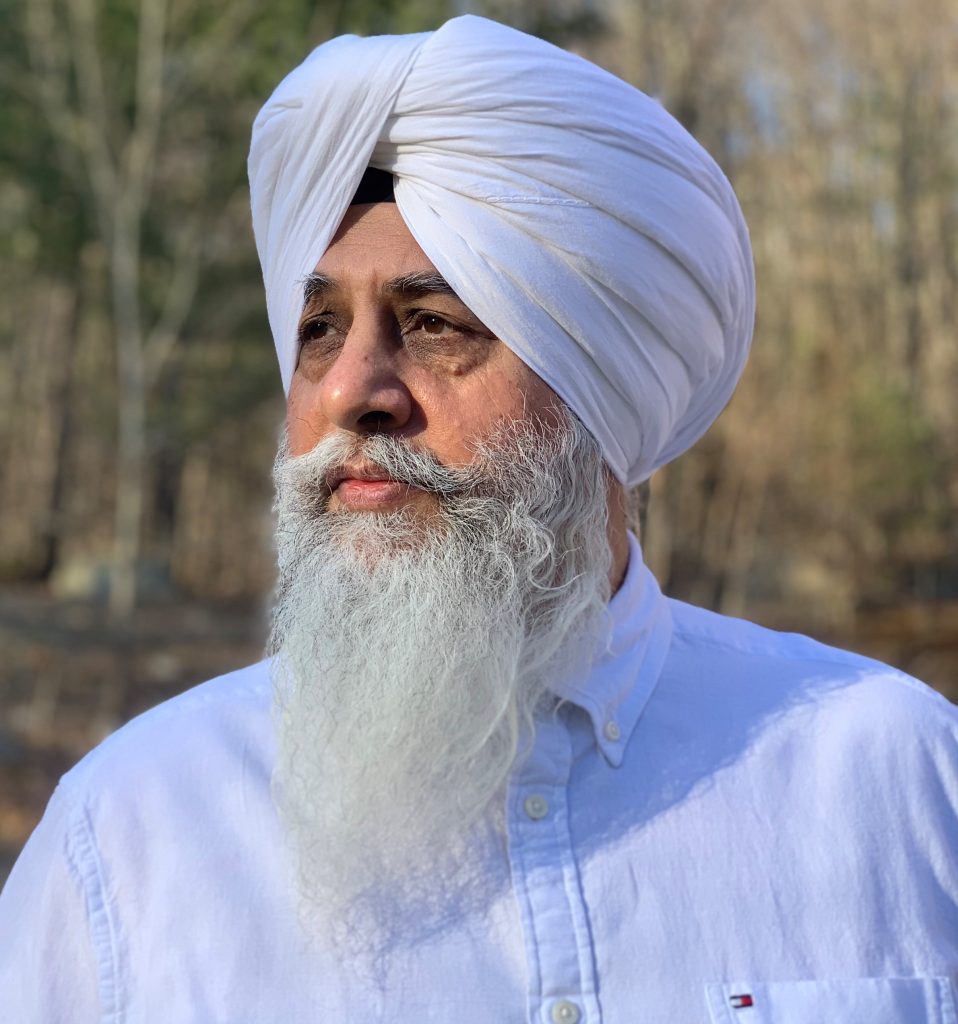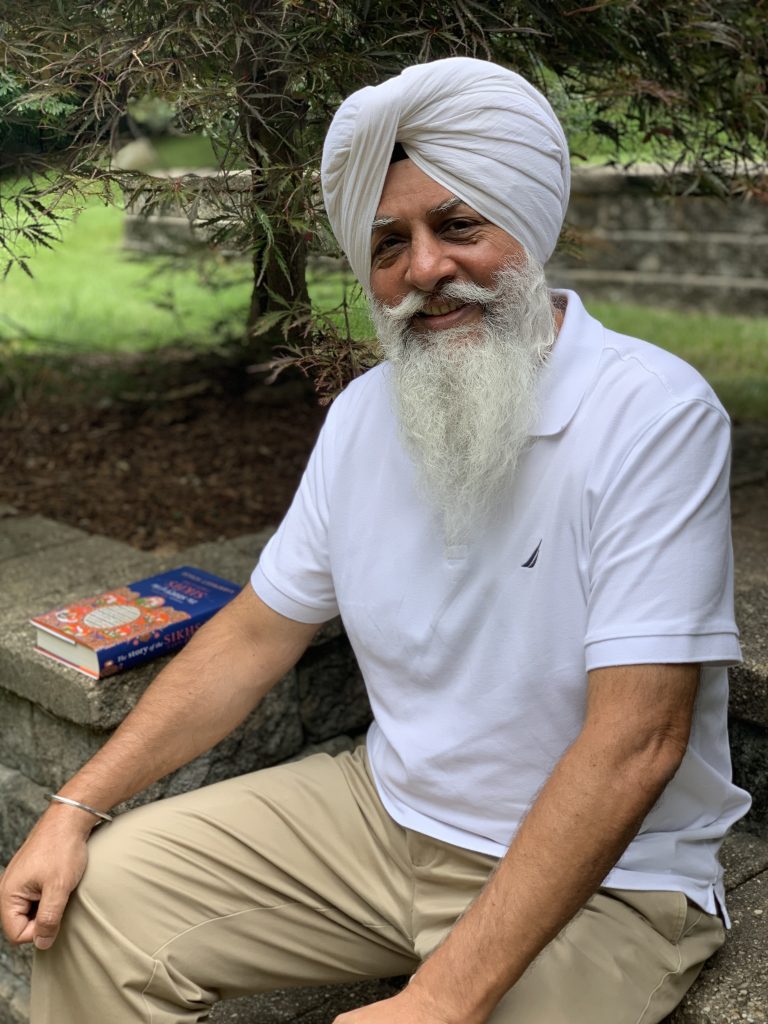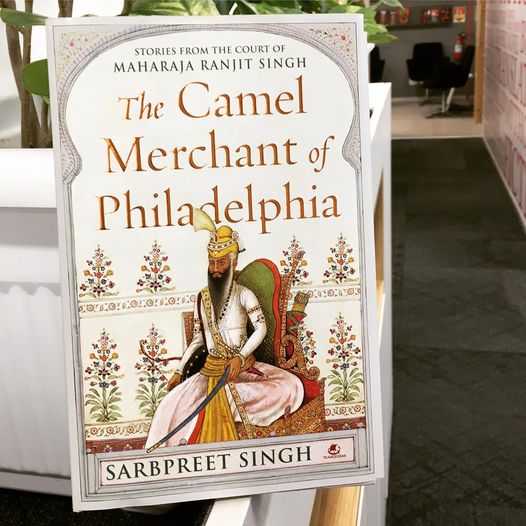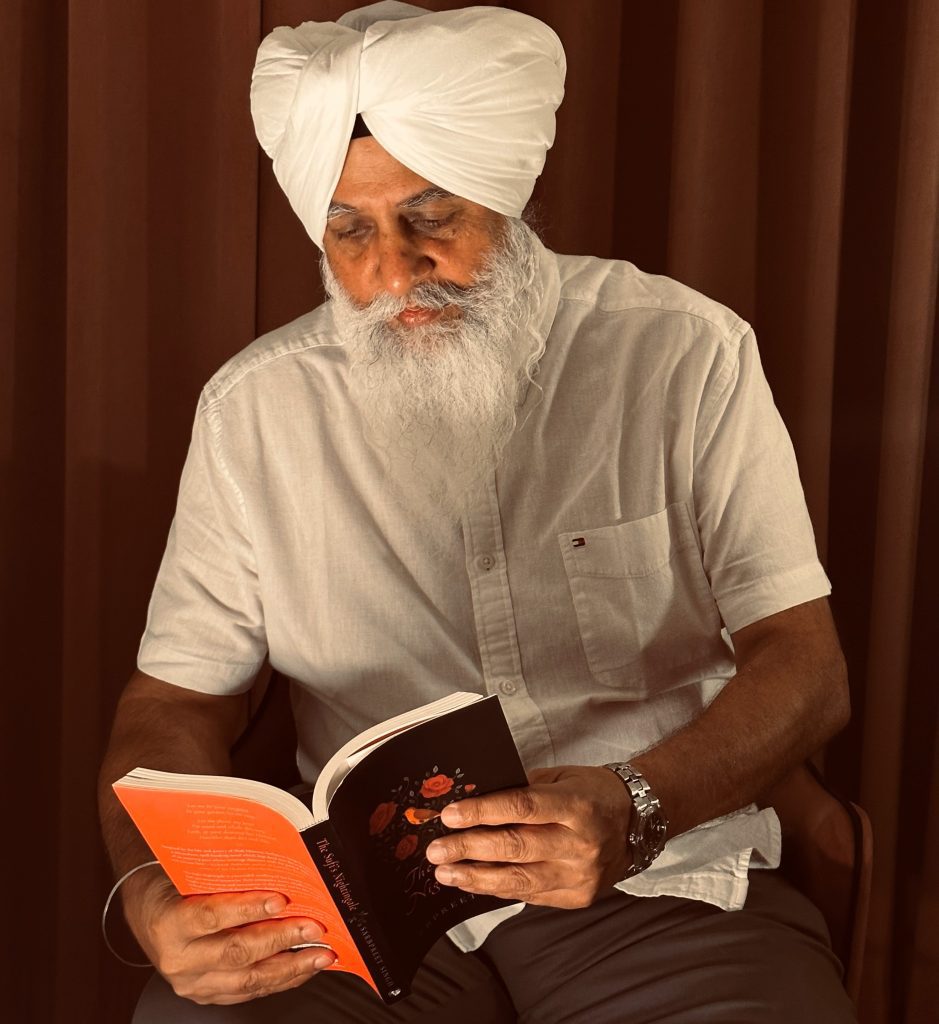(February 26, 2024) A Boston-based writer, podcaster, and commentator, Sarbpreet Singh is a man who wears many hats with élan. Author of the critically acclaimed books The Story of the Sikhs 1469–1708, Night of the Restless Spirits, The Sufi’s Nightingale, and the bestselling The Camel Merchant of Philadelphia, his deeply researched books have left an imprint on many readers.
Having worked for various firms, including General Electric, Lucent Technologies, Flextronics International, and AT&T Bell Labs, he made the career switch to writing in 2017.
Sarbpreet Singh is the very definition of a Global Indian. Raised in Sikkim, speaking Punjabi (his mother tongue) and Nepali (the language most prevalent in Sikkim), his syncretic upbringing and outlook have ensured he imbibes the best that places and people have to offer.

Sarbpreet Singh
Love of literature
Hailing from one of only two Sikh families that lived in Gangtok, Sikkim, the author was quite disconnected from his roots, both culturally and socially. He recalls, “While I had friends growing up, I struggled with feelings of isolation that came from the ‘othering’ that my visible Sikh identity provoked.”
In a school culture where sporting abilities were valued highly, his indifferent soccer and track and field abilities meant that he turned to elocution, dramatics and related pursuits, which transformed into lifelong interests.
He recalls, “I always loved literature, and during my high school years, against the advice of my mentors, I decided to study English literature as an elective, something that was not recommended for a student studying science subjects. The two-year syllabus enriched me tremendously as I delved into the likes of Thomas Hardy, Samuel Butler, John Galsworthy, and, of course, Shakespeare.”
Sarbpreet went on to study Engineering at The Birla Institute of Technology and Science in Pilani. After a stint at ICIM, a Bombay-based tech company, he left for the US to study computer science at Pace University in New York.
Life in the US
The author says that he adjusted to life in the US easily. “As someone who attended elite schools in India, had a deep love of the English language, and identified with western ideas and culture, I did not have much trouble adjusting to my new life in a new country. I maintained my Sikh identity, and while my distinctive physical appearance did lead to the inevitable othering, it did not hold me back in my professional career at all,” he states.

However, Sarbpreet did change profoundly in other ways. He recounts, “My first job took me to a small suburb of the Midwestern city of Milwaukee. Quite serendipitously, a budding interest in my roots, which had started while I was in graduate school, took shape as I started spending time with young Sikhs around my age who attended the small Milwaukee Gurdwara.”
As a young man who was until then immersed mostly in Rock and The Blues, and disdained all forms of Indian music, he found himself drawn to Gurmat Sangeet, or Sikh sacred music.
Milwaukee was also home to a small but thriving Indian classical music community, which Sarbpreet got involved with. The twin interests in Gurmat Sangeet and Shastriya Sangeet developed into a lifelong passion, especially as he launched The Gurmat Sangeet Project, a non-profit dedicated to the preservation of traditional Sikh music.
A writer by accident
As an expatriate Indian and a Sikh, Sarbpreet first encountered writings on Sikhs and the Sikh faith by chance. He explains, “While I did speak Punjabi, I never learned to read Gurmukhi and was hence limited to reading exclusively in the English language. I encountered J.D. Cunningham’s History of the Sikhs and Max Marthur Macauliffe’s The Sikh Religion, finding both works to be tremendously inspiring, after which I read Khushwant Singh’s History of the Sikhs as well.”
Reading about the broad worldview of the Sikh Gurus and the trials and tribulations of eighteenth-century Sikhs as they struggled to establish their progressive faith in a society that was anything but welcoming inspired Sarbpreet tremendously.
This budding interest in Sikh history led him to writings about more recent events, most notably the tragic events of 1984. He reminisces, “Reading the PUCL/PUDR report on the Delhi massacre, an article by Madhu Kishwar titled Gangster Rule on the same topic, and most importantly, an academic paper by anthropologist Dr. Veena Das created tremendous turmoil in my heart.”
This was the spark that prompted him to write Kultar’s Mime, a long poem about four children who survived the anti-Sikh violence of 1984 and their attempts to deal with their PTSD.
After that, Sarbpreet took a long break from writing, and it wasn’t until years later that he started writing a column for the popular web magazine SikhChic in 2013. He states, “The positive response to the column inspired me to write my first book, The Camel Merchant of Philadelphia, set in the court of Maharaja Ranjit Singh. The book was a great critical and commercial success, and it launched my career as a writer.”
From tech to storytelling
He left the world of technology around 2014 and, for the next two years, focused on producing the play Kultar’s Mime, created by his daughter based on his poem. He shares, “Somewhere along this three-year journey, which took the play to six countries for 90+ performances, I made the decision to embrace storytelling completely.” His epiphany came after a performance in Birmingham, UK, when a young Sikh in his late teens walked up to him and said, ‘I could never imagine that our stories could be told in this manner’. After the tour ended in 2017, he started writing in earnest.
Sarbpreet writes on topics that inspire him or catch his imagination; as his interests are varied, his books deal with different themes. He outlines it when he says, “All my work is deeply rooted in research, and I tend to immerse myself in my subject before I write a single word. For example, my latest novel, The Sufi’s Nightingale, is a retelling of the life of the poet Shah Hussain. While I tried to read everything about him that I could lay my hands on before writing the novel, I also spent a couple of years creating original compositions to sing his kafis or poems, which appear in translation in the book and are deeply embedded in the narrative.”

A man of many talents
Along with writing, Sarbpreet is also the writer-narrator of the podcast, Story of The Sikhs, which has listeners in over ninety countries. Ask him how he juggles it with writing, and he smiles. “There is really no juggling involved at all! Even though my canvas is quite broad, all my work is based on what truly inspires me. Novels, works of non-fiction, plays, poetry, podcasts, and music—all of these to me are just different modes of storytelling, with the ultimate objective of inspiring others.”
Though he has lived longer now in the US than in India, the author is rooted culturally in the Indian subcontinent. It is reflected in the food he likes, the music he listens to and the stories he writes. When not spending time with his family, he is busy with his other passions – tennis, music and literature. He is currently working on his next book, Cauldron, Sword, Victory – The Rise of the Sikhs expected to be out later this year.
- Follow Sarbpreet Singh on Instagram.






In the skilled hand of Sarbpreet Singh, factual history makes the character’s story feel real, and being immersed in that story makes history come alive for the reader, sometimes in surprising ways.
Historical fiction has the power to make connections between the past and present. Sarbprret Singh’s books bring people out of history and sets them beside you at the table—whispering, laughing, fearful. And it can lead its readers in pursuit of the historical record … Keep going and thanks from this wonderful write up on Sarbpreet Singh … Great going 🙏🏻
The Camel Merchants of Philadelphia is a brilliant book and a must read.